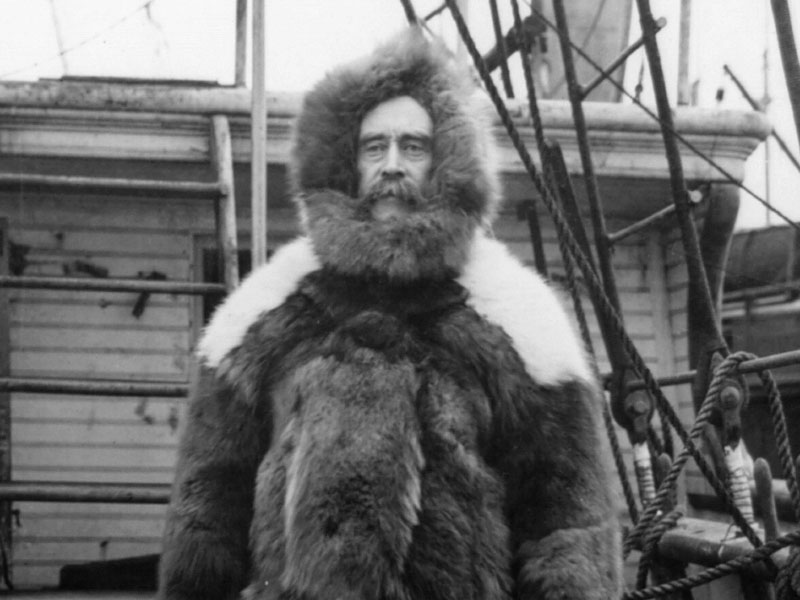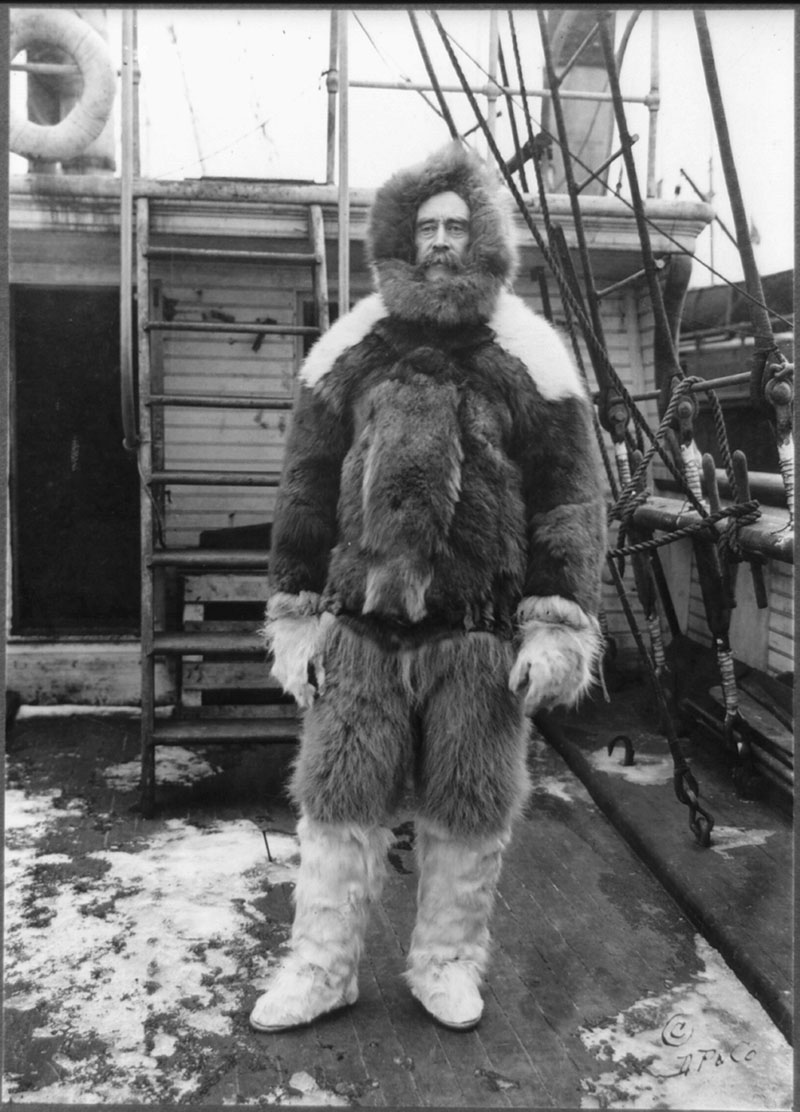
12 Aug Peary Got Near Pole. Couldn’t Reach Norfolk. Snowbound.
Peary Got Near Pole. Couldn’t Reach Norfolk. Snowbound.
by Ann Havemeyer
These were the headlines in the Hartford Courant on February 18, 1907, following Robert E. Peary’s aborted attempt to arrive in Norfolk in time for his scheduled talk at Village Hall. The irony was not lost on the reporter: “Commander Robert E. Peary has reached the farthest north of any man. He has come mighty near the North Pole, but he failed last week to reach Norfolk and had to abandon his attempt, snowbound. In a letter to H. H. Bridgman he says he is determined to succeed in his Norfolk adventure even if he has to use dogs and sleds.” A week later, his rescheduled appearance was announced, with reference to his myriad attempted “dashes” to the North Pole: “Peary to make another dash for this place starting from New York.” This time he was successful and, following his talk entitled Farthest North, he was treated to an exceptionally fast sleigh ride by Norfolk liveryman John J. O’Brien to catch a train back to the city. He was said to have enjoyed the ride immensely.
This was Peary’s second visit to Norfolk. Two years earlier he had given a slide lecture at the Eldridge Gymnasium, and at that time either his host Alice Bridgman, sister of library founder Isabella Eldridge, or Isabella herself asked him for his signature. It was then pasted into the Library’s copy of his 1898 book Northward Over the “Great Ice.” This copy now resides in our Rare Book Room.
In the library archives is a list of books presented to the Library by their authors, from the opening of the Library in 1889 to 1903. Many of these books were inscribed by the authors, who often had some connection with Norfolk. Charles Battell Loomis, humorist and cousin of Isabella Eldridge, presented his book Cheerful Americans in 1903. For a good laugh, read the chapter “Poe’s Raven in an Elevator” in More Cheerful Americans (1904), also on the shelf.
Alice Mabel Bacon presented an inscribed copy of her book Japanese Girls and Women (1902), possibly when visiting her sister Mrs. Eugene Smith, who summered on Laurel Way. The daughter of Rev. Leonard Bacon, Alice was 14 when her father took under his guardianship 12-year-old Yamakawa Sutematsu, one of a group of five young women sent by the Japanese government to be educated in this country, and the girls developed a close bond. Be sure to check out Janice Nimura’s Daughters of the Samurai (2015) for a riveting account of the Japanese girls’ experience. In 1888 Alice was invited to teach at the Peeresses’ School, established in Tokyo for girls from aristocratic families. Japanese Girls and Women (no longer in the library collection) is based upon her experiences in Japan and the friendships she developed with Japanese women.
In 1900 novelist, literary critic, and playwright William Dean Howells gave the Library an autographed copy of his book Tuscan Cities (1886). Howells was American Consul to Venice for four years and fell in love with this iconic region of Italy. His son John Mead Howells was a frequent guest of his uncle Charles L. Mead, who summered in a house on Maple Avenue.
Nearby on Maple Avenue was the summer home of Charles Spofford, son of Ainsworth R. Spofford, former Librarian of Congress (1871-1897). Upon retiring from that position, Spofford wrote A Book for all Readers Designed as an Aid to the Collection, Use, and Preservation of Books and the Formation of Public and Private Libraries (1900), based on his experience developing the LOC collection. He presented it to the Library, perhaps with the thought that it would be helpful to Isabella Eldridge, who continued to oversee the purchase of books for the Library.
Norfolk’s intimate connection with Yale University is reflected in the autographed copy of The M. Seinert Collection of Keyed and Stringed Instruments with Various Treatises on the History of these Instruments (1893), given to the Library by Morris Steinert. A musical instrument dealer in New Haven, Steinert likely visited Norfolk as a guest of Gustave Stoeckel, Yale’s first Professor of Music, who summered in a house on Litchfield Road. In 1894, Steinert organized the New Haven Symphony Orchestra, and in 1900 donated eighty-three historical instruments to Yale, providing the core of the future Collection of Musical Instruments. The collection was recently re-named the Morris Steinert Collection of Musical Instruments to honor the Steinert family’s generosity and legacy.
Suffragist and women’s rights advocate Isabella Beecher Hooker, sister of Harriet Beecher Stowe, presented a copy of her booklet A Brief Sketch of the Life of Harriet Beecher Stowe, written in 1896 after her sister died. For many years Isabella summered in the house on the corner of Maple Avenue and Emerson Street. We do not know to what extent she interacted with Isabella Eldridge, whose family did not support women’s suffrage. But they undoubtedly crossed paths in this small town, and it would have been interesting to hear them converse on that subject.

Robert E. Peary dressed in polar expedition gear aboard his ship, the Roosevelt. Photo: Library of Congress, Washington, D.C.




Sorry, the comment form is closed at this time.